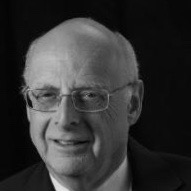Two leading political scientists, Robert Putnam and David Campbell, have recently released their findings related to the connection between religious affiliation and voting patterns. Their study released this month in Foreign Affairs magazine suggests that “church attendance has become the main dividing line between Republicans and Democratic voters.”
In their article, “God and Caesar in America” they conclude that “politically moderate and progressive Americans have a general allergy to the mingling of religion and party politics.” Tracking voters between 2006 and 2011, these researchers found that Democrats were much more likely not to be involved with churches or synagogues than were Republicans. Liberal voters, they suggest, hold the following viewpoint: “‘Well, if religion is just about conservative politics, than I’m otta here.’”
Correspondingly, younger voters (the millennials) are moving away from religion in strikingly high numbers. If nearly 20% of the affiliated-church (synagogue) attendees were leaving America’s pews between 2006-2011, that number appears to be five times higher among those under 30 years of age.
Over the history of this nation one of the key centers for political organizing and social activism were our religious institutions, both liberal and conservative. Today, liberal denominations face serious challenges in reaching constituencies that at one time where a part of their membership base. This also has a profound impact on Democratic Party grass roots organizing as there maybe fewer points of connection available.
While the study primarily focuses on denominational groups within Christianity, comparative data on synagogue affiliation patterns exists within the Jewish community. Indeed, multiple factors are contributing to the decline of membership within America’s synagogues but the political element must not be excluded from this scenario. If the same imagine does exist within Jewish life, namely that much of American Judaism is seen as the bastion for conservative political values and beliefs than such data will have a striking impact on recruiting and engaging younger Jews to feel at home within the walls of our synagogues.
Clearly, many younger Jews already hold an array of negative views regarding many of our established organizations. In part, such ideas have sparked the emergence of a counterculture of Jewish activism and organizing, often occurring outside the framework of the mainstream institutions.
The alignment of an individual’s religious values with their political passions has been one of the entry points for engaging young people over time to join synagogues and to participate in communal institutions. The Jewish community has a great deal at stake if we lose this opportunity to embrace the next generation, both religiously and politically.
Steven F. Windmueller, Ph.D.
Rabbi Alfred Gottschalk Emeritus Professor
HUC-JIR
Los Angeles Campus
213-765-2190
Did you enjoy this article?
You'll love our roundtable.
Editor's Picks



What Ever Happened to the LA Times?

Who Are the Jews On Joe Biden’s Cabinet?


No Labels: The Group Fighting for the Political Center
Latest Articles

Sephardic Torah from the Holy Land | The Seventh Day…
The Middle Matza Passover 2024

The Jewish James Bond Already Knows His Villain













 More news and opinions than at a Shabbat dinner, right in your inbox.
More news and opinions than at a Shabbat dinner, right in your inbox.